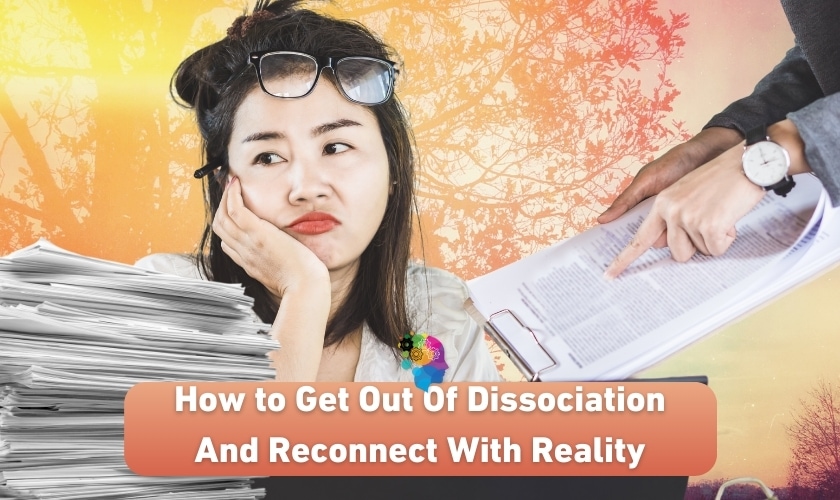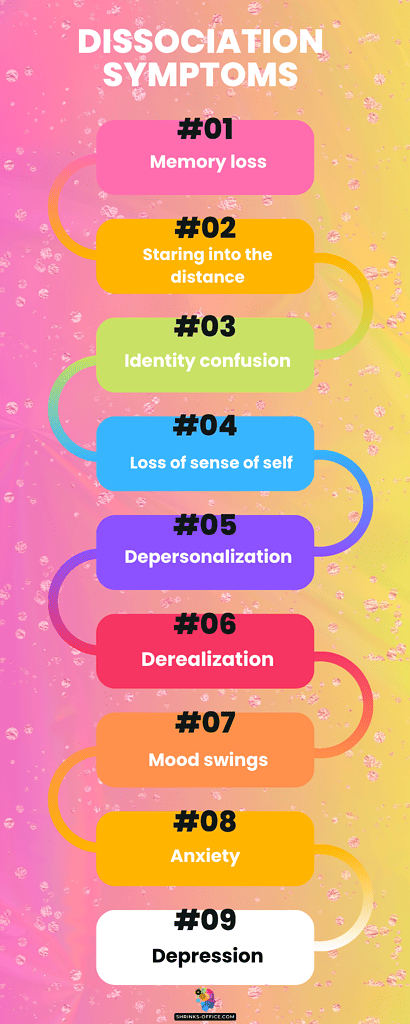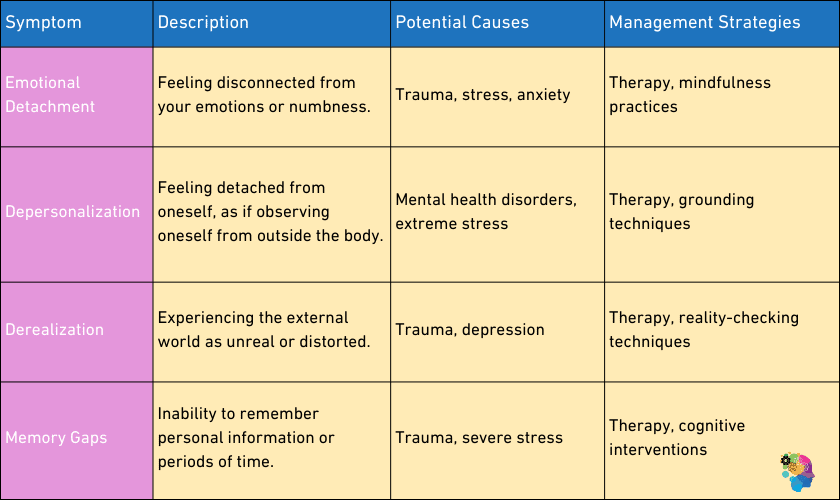In today's fast-paced world, finding moments of mindfulness can be a challenge. Embracing "The Power of Now"...

How To Get Out Of Dissociation
- Bring your awareness back to the present moment
- Take slow, deep breaths to help calm your body and mind
- Use physical sensations
- Focus your attention on your breath, body sensations, or a specific object
- Engage in gentle physical activities, like stretching or walking
- Use a grounding object
- Reach out for support or talk with a therapist

If you suffer from dissociation, it can be very difficult to feel connected to reality. This disconnection can make life feel overwhelming and confusing, but it doesn't have to be this way.
Fortunately, by taking meaningful steps to break free of the cycle of dissociation and reconnect with reality. In this post, we'll explore proven strategies to help you live more fully in the present moment.

Dissociation is a break in the connection between our thoughts, memories and sense of identity. People who experience dissociation may feel detached from their body, like they're watching themselves from outside their own skin.
It's also a unhealthy coping mechanism. But it can be difficult to form meaningful relationships or stay focused on tasks for more than a few minutes at a time. [1]


What situations or activities tend to trigger your dissociative disorder? Once you know what your triggers are, you can try to avoid them or be prepared for them. If you can't avoid them, try to have a plan for how to cope with them ahead of time.
Having a routine can help you overcome your dissociative disorders give you a sense of stability. Try to stick to regular mealtimes, sleep schedules, and exercise routines as much as possible.
Spend time outside in nature and take in your surroundings – the sights, smells, and sounds of the world around you. Doing this can help shift your focus away from whatever is causing your dissociation and help you feel present.
When you start to feel like you're dissociating, focus on your breath and the sensations in your body. Try to ground yourself by touching something around you or focusing on a specific object.
Writing down your thoughts and feelings can help you make sense of the things that are contributing to your dissociation. It may also be a useful tool for tracking changes in your mental health over time.
Talking about what's going on can help you feel more connected and less alone. Find someone who will listen without judging you or trying to fix your problems.
If you’re feeling lost, confused, or disconnected from reality, talking to a trusted friend or family member can help you feel more grounded.
If dissociation is affecting your everyday life, it's important to seek professional help. A therapist can help treat dissociation in healthy ways. [6]
Each person's experience may vary slightly, but this article aspires to provide a helping hand on the journey towards getting out of dissociation. Life brings many opportunities - take courage, seek understanding, and make the most out of what comes your way.
If your experience with dissociation is having a negative impact on your ability to go about daily life, it may be time to seek professional help. Talk to a therapist or psychiatrist if you feel that the level of dissociative symptoms is interfering with your functioning or relationships.
Practicing mindfulness and relaxation techniques can be helpful in calming the mind and restoring balance. Taking slow, deep breaths can help to restore a sense of connection with the present moment. Exercise, journaling, talking to supportive friends or family members, and seeking out new activities can bring joy.
You must be logged in to post a comment.
In today's fast-paced world, finding moments of mindfulness can be a challenge. Embracing "The Power of Now"...
In our fast-paced world, finding moments of tranquility can be a challenge. Meditation apps offer a convenient...
In our fast-paced world, taking time for self-reflection and mindfulness is essential for well-being. Journaling can be...
In today’s fast-paced world, managing stress has become an essential aspect of maintaining overall well-being. Two popular...
Dissociation can be a challenging experience, especially the one that happens at work. Are you experiencing dissociation?...
Bionic reading transforms the reading experience for ADHD individuals by guiding the eyes for focus and understanding. Dive into the world of bionic reading.
Explore the complexities of postpartum depression and genetics in our blog 'Is Postpartum Depression Hereditary?' for insights into maternal mental health.

[…] Disassociation […]
[…] Seeking relief from feelings of numbness or emptiness […]